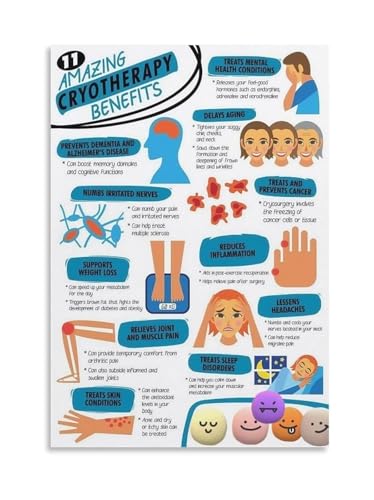Sleep health benefits includes promoting longevity, improving memory, sharpening attentive span, reducing stress, reducing risk of depression, assisting in weight maintenance, promoting muscle building, promoting heart health, reducing inflammation, improving sex drive, and keep you youthful.
Do You Need Sleep?
When it comes to our health one thing that is often underestimated is the amount of sleep we need. Sure, maybe you eat right and exercise but you may quickly notice your health deteriorating if you do not sleep please 8 hours a night.
A good indicator of if you’re sleeping enough? How do you feel when you wake up in the morning? If you never feel quite refreshed and instead suffer from a lack of energy throughout the day, chances are you need more sleep.
But of course sleep is important for much more than that, as it helps in the maintenance of body processes used every single day of our existence. Not sure of some of the other important functions of sleep? Read on to find out more
11 Amazing Health Benefits of Sleep

1. Promotes Longevity
Study after study has found that people who sleep less are much more likely to die at a younger age. This could be due to the increased likelihood of picking up infections as your immune system is suppressed, or a host of many other factors at Play. Sufficient sleep helps ensure the immune system function optimally all the time and also promotes healthy cellular turn over which in turn will promote your longevity.
2. Improves Your Memory
Many people don’t realize that while you’re sleeping your mind is actually working hard to string together the day’s events and making them into long term memory. This brain technique is known as consolidation, and is important to our retention over time. This is why after a hard day of school if you do not sleep enough you are unlikely to retain any of the knowledge you learn. Do yourself a favor; the harder your brain works during the day sleep more at night.
3. Sharpens Attentive Span
If you’ve ever had to go to work or school after a night not having enough sleep then you know how your performance is impaired. You find it difficult to stay attentive in class or anything that is said goes straight over your head. Worse yet. your short-term memory is also impaired as you’re likely to forget what you were supposed to be doing in the first place. Studies have found that children who get less than 8 hours of sleep per night are much more likely to develop symptoms of ADHD while adults May develop some form of anxiety disorder.



4. Helps Reduce Stress
Stress is a killer even though many people do not understand what this statement means. The fact is that stress keeps us alive, but as with everything else in life too much quickly becomes a bad thing. The stress hormone is what gets us out of bed in the morning as well as making it possible for us to deal with the everyday obstacles life may throw at us. However, chronically elevated levels of the stress hormone not only impair numerous body systems, but also cause of rapid deterioration of Health.
Luckily sleep is one of the best natural ways to reduce the impact of stress due partially to Natural elevations of growth hormone and melatonin that occur as we sleep. Insomnia or chronic sleep deprivation only worsens the impact of stress on our bodies, but luckily after a few nights of consecutive good sleep is normally enough to help reset the cortisol balance.
5. Reduces Depression Risk
While there may be genetic differences that cause an individual to have a higher depression risk, it can still happen to anyone, especially when you do not get enough sleep. This is because insufficient sleep can upset the delicate balance of neurochemicals in the brain, among them being dopamine and serotonin, two very important chemicals involved in the maintenance of mood.
Prescription medication may artificially prevent the breakdown of Serotonin, but they only work for a short-term and usually have a lot of side effects. Getting adequate sleep can actually prevent this in the first place, as sleep helps in the synthesis of the neurotransmitter serotonin and coupled with the suppression of cortisol, will help ensure your mood is balanced
6. Assists In Weight Maintenance
Lack of sufficient sleep can result in a host of complications, one of them being weight gain. But why is this so? You can thank the hormone cortisol for this. Cortisol promotes fluid retention as well as inhibited fat burning, making the perfect cocktail for weight gain. Luckily, sleep can help to offset this. During sleep, levels of growth hormone spike; growth hormone being a very potent lipolytic hormone. Growth hormone promotes the usage of fat for fuel oil and prevents new storage of fat. When it comes to weight loss, sleep is your friend
7. promotes Muscle Building
Contrary to what most people believe, muscle growth doesn’t happen in the gym, but rather while you sleep. While the gym does provide the stimulus necessary for muscle growth, this actual rebuilding process happens as you sleep, and requires changes to protein synthesis at the genetic level. DNA signals for increased muscle protein synthesis and slows down the rate of muscle loss to catabolism. In like manner you brain also signals to increase testosterone and growth hormone production to facilitate the growth of muscle cells. If you work out hard and eat right and yet find yourself not making the muscle gains you would like, it’s time to take a hard look at your sleep pattern and decide if you are getting enough.
8. Promotes Heart Health
Research has consistently shown that people that sleep the recommended minimum of 8 hours per night are much less likely to experience heart attacks or strokes. Sleep helps ensure that blood pressure is kept in the normal range, and also helps to reduce the amount of work the heart has to do to pump blood. The stress hormone cortisol has an adverse effect on the heart, increasing blood pressure causing blood vessels to constrict. Sleep prevents these adverse changes and keeps her heart healthy for years to come.
9. Reduces Inflammation
Sleep is actually one of the strongest anti-inflammatory tools we have at our disposal. Many diseases and body disorders are associated by an increase in inflammatory responses, such as diabetes, heart disease arthritis and premature aging. Research has shown that sleep helps to reduce levels of inflammatory proteins in blood, specifically one by the name of C-reactive protein. People that sleep less than 6 hours per night have elevated levels of this protein and higher risk of developing inflammatory conditions, and when coupled with elevated levels of the hormone cortisol, the effects can be catastrophic
10. Keeps You Younger
One of the first visible signs of insufficient sleep is accelerated aging, especially on the skin. This is manifested by poor looking skin and development of wrinkles and fine lines on the face, in addition to possibly premature greying of the hair. Sleep helps ensure healthy turnover of cells and can prevent premature hair greying as well.
11. Improves Sex Drive
The hormone responsible for dictating your sex drive, testosterone, is produced during sleep and it’s higher in people that sleep 8 hours routinely. If you think your libido is lower than it should be, the first thing you can do is analyze your sleep patterns; then if you discover you’re getting less than 8 hours try to improve that and see if it works. Only if this fails should you consider using prescription medication.
Conclusion
Hopefully you now see the importance of getting quality sleep, as its benefits are numerous and trickle-down to various aspects of our health. Don’t ever regard it as being a waste of time as sleep is what ensures your survival and longevity



Join the 7‑Day “Better Gut” Plan
Pop in your email and we’ll send Lesson 1 + the printable list.







